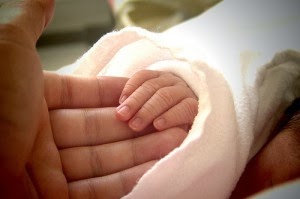For the first few years of college, I maintained the typical
college-student sleep schedule: in bed between 2am and 3am, dragging myself up
at 9am for my 9:30am lecture which I inevitably slept through (in the front
row… what was I thinking?!?). Chronically sleep-deprived, I would rather be
spending time with my new friends and boyfriend than catching those precious
zzz’s. Many of those nights made for wonderful memories, but other times I’d
find myself inexplicably upset over some small issue, picking fights with my
boyfriend (now husband) in the wee hours of the night. “You’re tired, go to
bed” my wise boyfriend would tell me. “No I’m not! This is a real issue!” sleepy
me would argue back, frustrated at his disregard, not understanding why he didn’t
get what I was feeling.
Now that I’m older and wiser, I will publicly state that my
husband was right – 99% of the time I was just tired and a good night of sleep
made all of my problems go away. Happily, I eventually learned the benefits of
getting my requisite 9 hours of sleep, and rarely find myself picking fights in
the middle of the night. And now, 10 years later, I’m putting this anecdote to
the test – conducting research to answer the question of whether we might, at times, find
ourselves in conflict simply because one of us is tired.
Poor Sleep: A route
to unnecessary conflict?
Conflict is an important, inevitable, and healthy component
of relationships. Romantic partners who are sharing their lives together are
expectedly going to have times of disagreement. In fact, being able to express
differences of opinion and find compromise may very well be the hallmark of a
healthy relationship. However, conflict is not always helpful and even at its
best, is generally unpleasant. Minimizing unnecessary squabbles is vital for
the longevity of relationships. And here is where I think sleep comes in.
People who are sleep deprived tend to experience more negative emotions (see this post for more on sleep and mood),
are more reactive to negative events, and are worse at problem solving. A
recipe for disaster – whereas someone who is well-rested might be able to
clarify when they think they’ve been criticized, or simply shrug off a sink of
dirty dishes, someone who is sleep-deprived is more likely to be a ticking time
bomb, possibly reacting automatically without the capacity to stop and think it
through.
In our research, we examined the link between sleep and
conflict, testing three main questions:
After sleeping poorly…
1.
Are people more likely to report
experiencing conflict with their relationship partners?
2.
Is their conflict more severe?
3.
Are they less able to resolve conflict?
The short answer is Yes.
A bad night of sleep is associated with more frequent, severe and less resolved
conflict between relationship partners. But read on for the longer explanation…












































